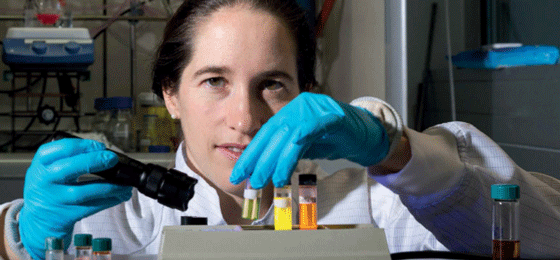Almost 850 million for basic research

In 2014, the SNSF invested 849 million Swiss francs – more than ever before - in new basic science projects and the promotion of young researchers.
In 2014, the SNSF approved a total of 3469 applications, to which it allocated 849 million Swiss francs in total. In the SNSF's recently published annual report, this amount is reported to have increased by almost 4% year-on-year. In addition, about 92 million francs were spent on the Temporary Backup Schemes. The SNSF launched the schemes as a short-term replacement for the temporary unavailability of research funding from the EU. All in all, around 14,000 researchers were involved in projects funded by the SNSF in 2014.
Compared to the previous year, the share of mathematics, natural and engineering sciences in the total funding amount of 849 million Swiss francs rose by 5% per cent to 38%. For the first time in years, it is higher than the share of biology and medicine (37%). The main reason for this lies in the launch of the new National Research Programme "Energy Turnaround" and the new series of National Centres of Competence in Research. The humanities and social sciences received 25%.
Universities and ETHs: every third researcher submits an application
The SNSF is only one of several funding sources for researchers in Switzerland. Overall, SNSF grants account for approximately 15% of all research funding at Swiss universities. According to its own calculations, around one third of researchers employed at the universities and ETHs submit proposals to the SNSF or are current grant holders.
Coverage is highest in mathematics, information technology and the technical sciences (MINT disciplines), followed by biology and medicine. In the humanities and social sciences, the share of funding is unevenly distributed. Hence numerous disciplines within the humanities and social sciences show a potential for growth with regard to the number of submitted applications. The above also applies to researchers at universities of applied sciences and universities of teacher education.